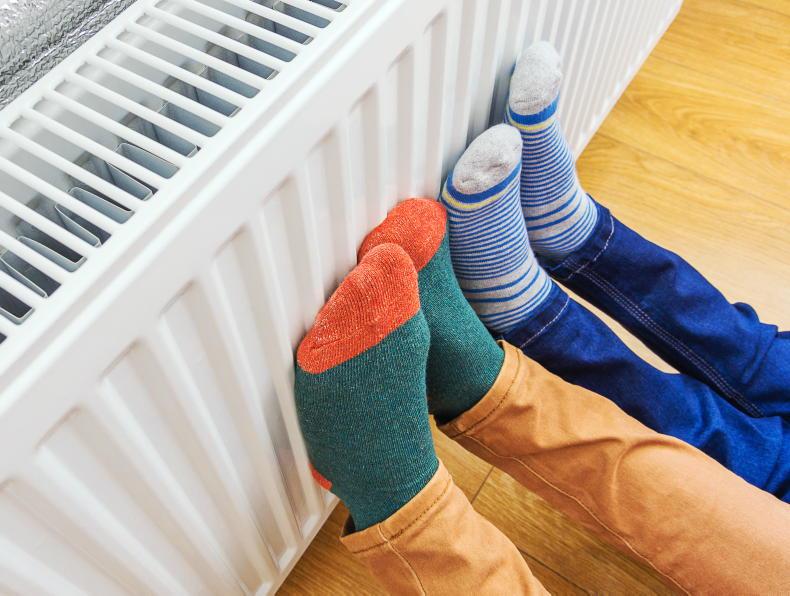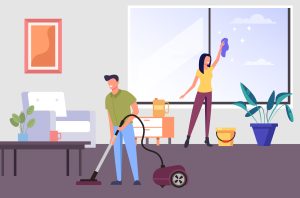
Susan Andrews is part of Sustainable Energy Authority of Ireland’s (SEAI) marketing team and focuses on home energy upgrades and electric vehicles.
She has recently completed her building energy rating (BER) assessor course and has plenty of knowledge on ways to save energy in your home.
She shared these tips with Irish Country Living.
1. Adjust heat settings on thermostats
“In your living areas, you really should have your temperature at around 20°C. Anything above that is probably too warm.
“If you turn your temperature down from 21°C to 20°C on your thermostat, you could be saving about 10% on your energy bills.
“Generally speaking, you don’t want your bedrooms up at 20°C, a healthier environment for sleeping is around 17°C or 18°C,” says Susan.
She also advises to take note of any rooms you don’t spend a lot of time in, like guest rooms, and turn the heat down or off in those rooms.
2. Install heating controls
“[Heating controls] allow you to separate the control of heating your home and heating your hot water,” says Susan.
These controls can also establish different zones throughout the house, allowing you to heat them separately or at different temperatures.
Susan explains: “There’s smart heating controls now where you get an app on your mobile phone and it gives you even greater control when you’re out of the house.”
Heating controls can save you a further 20% on your energy bills.
3. Say goodbye to stand-by
Appliances on stand-by use about 20% of electricity. Susan says: “Switch off the lighting, don’t leave appliances on standby; the likes of your TV and your laptop, just turn them off when you’re going to bed or if you’re going out of the house.”
The take-away here is to switch off all sockets or pull out the plug from all household appliances not in use.
4. Pay attention to energy labels
When it comes to appliances like such as dishwashers or washing machines, Susan explains: “The main source of energy is heating the water to give you hot water.
“Quite often, these appliances have eco settings so you should really look and use those eco settings. It just means they run at a lower temperature, but you’re still getting the same results.”
If you are deciding to buying new appliances, it is worthwhile noting that all appliances have an energy rating from A to G, with A being the most energy-efficient one.
The more energy efficient, the lower the cost of using that appliance, so, if you can, try to aim for an A-rated product.
5. Minimise draughts
Saving energy efficiently means keeping heat in your house and lessening the amount of times you have to turn on the heating system. Draughts are a culprit in counteracting heat maintenance.
Susan says: “Figure out which rooms those draughts are coming into. You can go into your local hardware and get draught strips and seals.”
Drawing curtains or blinds will prevent draughts from coming in at night. Susan adds: “In the morning when it’s starting to get bright, open up the curtains, because you’re going to get that solar gain from the sun, which is going to heat your rooms as well.”
6. Improve your fireplace
If you have an open fireplace, you should be aware that chimneys are a big area of draught and an escape route for heat.
Susan explains: “You’re losing 70% of your heat when you have an open fire. So, ideally, we’d be suggesting people move away from lighting a fire and if they don’t want to go to permanently blocking their fireplace, you can get a chimney balloon in a hardware store.”
7. Be conscious about little actions
During everyday actions such as making a cup of tea, you can change habits to save energy.
Susan says that “people don’t realise that the kettle actually is a big source of energy” and advises to only heat as much water as you need instead of filling the kettle up every time.
Even keeping the fridge door open unnecessarily increases your energy bill. “If you have your fridge door open for 20 seconds, it takes another 45 minutes for that fridge to get back to that cold temperature.”
Susan concludes: “The really key thing to understand here is changing habits. Championing that change in behaviour to make you more conscious of what is wasteful energy use and to change that behaviour; that’s really what’s going to have the impact you need.”




